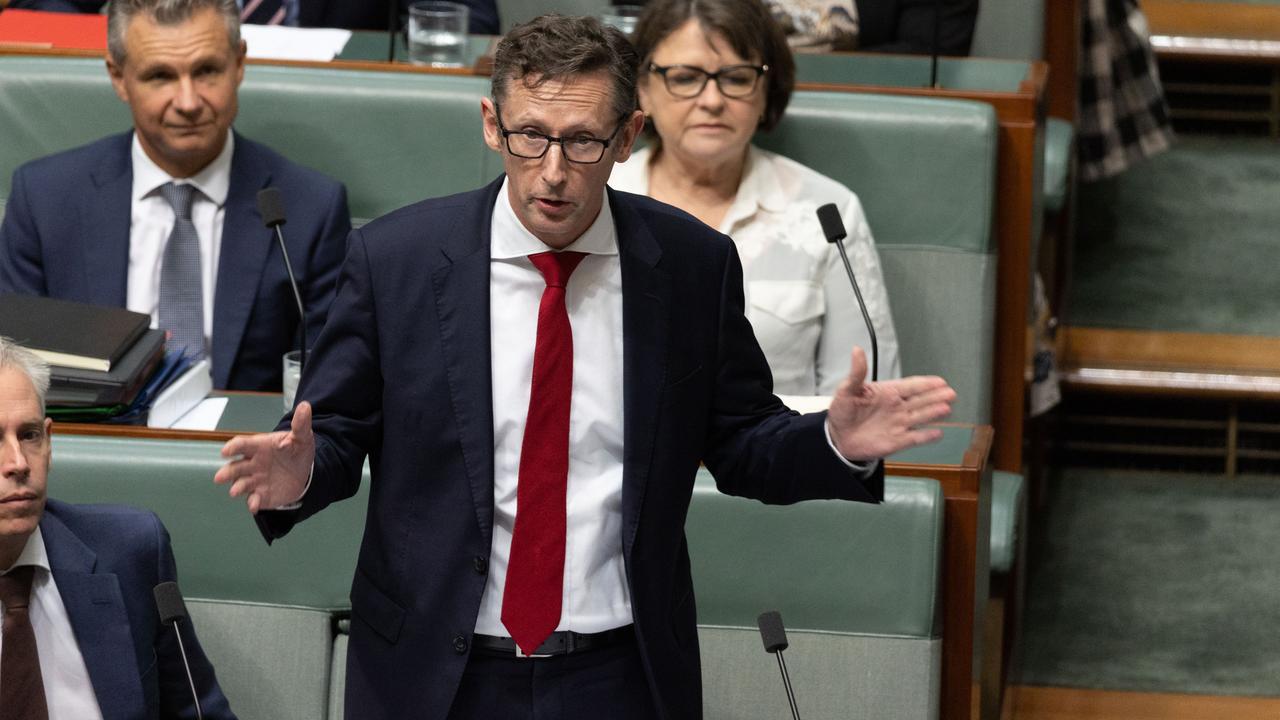‘Knock it on the head’: Tech monopoly crackdown
The tech giants that dominate our app use could face large new fines and bans on anti-competitive dominance.

The major tech firms will face tighter rules so consumers are not shackled to the digital giants, while small developers and businesses can get into the market.
Financial Services Minister Stephen Jones will announce a new digital competition regimen, which is now open for consultation, during a speech on Monday night.
The impetus for change has been platforms preferencing their own apps unfairly, forcing consumers to buy one of their products to use another product, and platforms preventing consumers from switching to better alternatives.
“We want to knock these practices on the head,” Mr Jones will say.

The Australian Competition and Consumer Commission will oversee compliance with the new framework, with penalties up to $50m or 30 per cent of a company’s turnover.
“The dominant platforms can charge higher costs, reduce choice, and use sneaky tactics to lock consumers into using certain products,” Mr Jones is expected to say to an audience at the McKell Institute on Monday.
“Innovation outside of the established players becomes almost impossible.
“With a dominant app store provider, developers are forced to make their apps available on that app store. This reduces the bargaining power of both developers and consumers.”
Under the new regulations, platforms that are of significance to Australian consumers and the economy and pose the greatest risk of competition harms will be designated by Mr Jones based on ACCC investigations.
From there, the tech companies will be required to follow broad and specific obligations.

Broad obligations include restricting conduct that favours a platform’s own products or services over those of a competitor and a platform making the use of a product or service conditional on the use of another product or service, known as tying.
Other broad rules will include removing barriers to switching to a competitor, ensuring fair treatment of business users, and requiring greater transparency about policies, processes or data for users and businesses.
Under the specific new rules, companies cannot prioritise their own apps in search results, even when competitors offer higher-rated or more relevant options.
Developers or businesses will not have to use the app store’s payment systems.
“Where in the past we have relied upon rules being enforced after the fact, the dynamic and complex digital economy requires a new approach,” Mr Jones will say.
“Waiting for investigations can take years to resolve and remedy.”

Indicative of the lag in remonstration and remedy, the framework proposal is based on an ACCC report that was released in November 2022. The government committed in-principle to the ACCC recommendations last year.
The tech giants are not “necessarily competing on having a better product – just on being bigger”, Mr Jones will say in his speech.
“And this means consumers can miss out on higher quality and lower cost goods and services,” he will say.
“Under our new framework, we will introduce upfront rules and obligations on big digital platforms.”
The new proposed digital competition regimen is open for public consultation until February 14.
The proposals are separate from the banning of under-16s from social media in Australia that passed into law last week and will not take effect before December 2025.
Originally published as ‘Knock it on the head’: Tech monopoly crackdown



